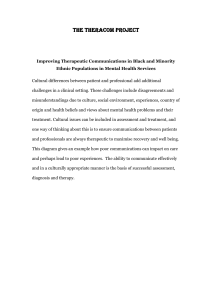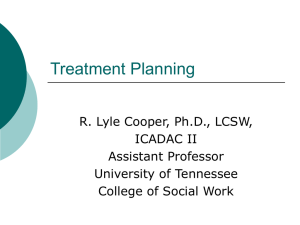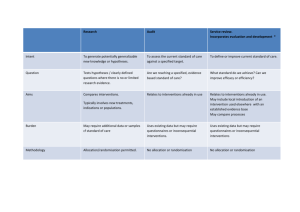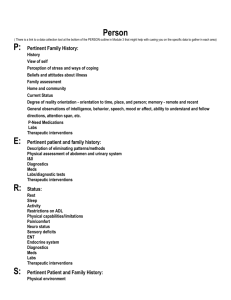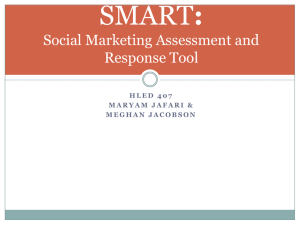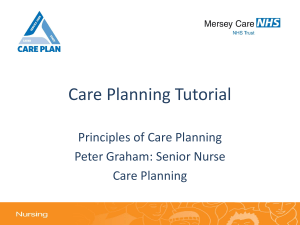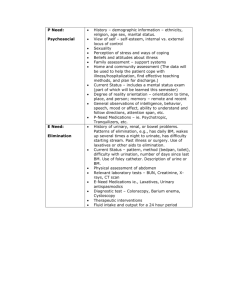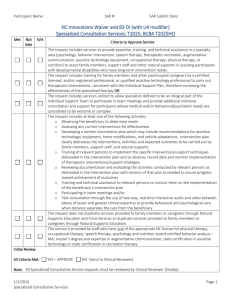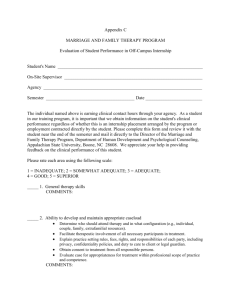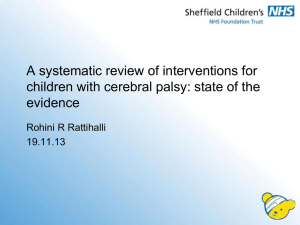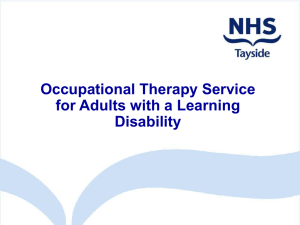Tracey Martin
advertisement
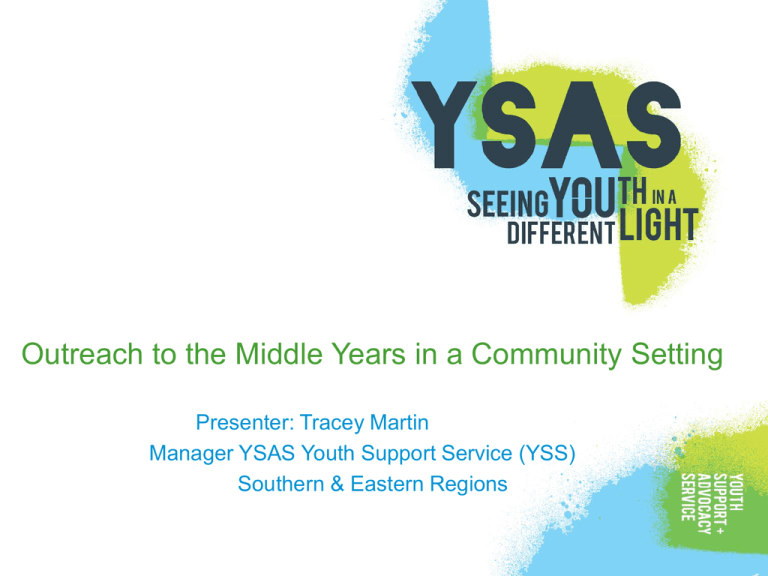
Outreach to the Middle Years in a Community Setting Presenter: Tracey Martin Manager YSAS Youth Support Service (YSS) Southern & Eastern Regions Vulnerable Young People who have had first time contact with Victoria Police YSS target group: • • • • • Aged 10-17 Often a missing Persons, out of school during school hours, out of home late into the evening, property damage, bullying as victim or perpetrator, in possession of a prohibited weapon. Additional layers of vulnerability (learning disability, family violence, emotional disregulation, low SES). Age differences, gender differences, cultural considerations. Early intervention, prior to statutory involvement A new challenge for Youth Workers What's different working with the middle years? • Family/school expectations – “fix” young person • Impact of Family/school systems – change resistant • Issues of informed consent • Service readiness/goal setting • Developmentally appropriate interventions • Impact on “client-centered” practice (addressing risks and educational engagement) A new challenge for Youth Workers • Challenging presentations – transitions, ID, violence • Risk Assessment processes • Information sharing vs confidentiality • Less tangible “outcomes” • Limited referral options – specialist service exclusion How does YSS Respond • • • • • • • • • • • Family inclusiveness vs family sensitive Negotiate goals with client and family Parenting support/skill development Mature minor principle – program procedure Policy development – information sharing Developmentally customized interventions protective issues - Monitoring/liaising/reporting Professional Development for Staff Systems informed assessment practices Include family in follow up measures Client participation Investing time in Engagement A relationships model • • • • • • • Handover/family involvement in sessions Identifying strengths, talents and passions (not heavily focused on individual case work goals for this age range) A ‘non-blaming’ therapeutic stance Mentoring/role model role Commence engagement with recreation, arts, family and community connection. Pay attention to language dealing with attachment and closure. Family Based Asessment: What does it include? • Genogram • Issues/strengths in each relationship • History of child protection/family court • Family needs; current supports, previous strategies/interventions • Key circumstances • Potential supports available • Views on offending/police contact and YP’s needs Therapeutic case work Delivering clinically informed interventions in a non clinical way • • • • • The outreach model, use of vehicles, home visits, schools visits, activities. Case Management: care planning, case review, co-ordination. Visual materials – interactive drawing, strength cards, resources. Therapeutic games- music, feelings dice, bubbles relaxation, feeling balls Skills development, role play and positive reinforcement THANK YOU! Tracey Martin Manger, Youth Support Service Southern & Eastern Metro Regions Youth Support + Advocacy Service Mobile: 0407 861430 Email: tmartin@ysas.org.au
